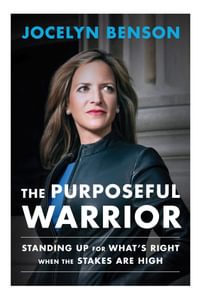
I’ve been thinking a lot about courage lately—whether we’ve ever needed it more and how to summon it during these challenging times. The Purposeful Warrior by Jocelyn Benson ’99 has helped me tackle both questions.
The book examines staying strong when things get tough and ensuring people hear what you have to say, even when it’s uncomfortable.
I’ve met Benson several times, and each time, I walk away thinking she truly embodies Wellesley and our shared values. The College’s motto, Non Ministrari sed Ministrare, is a mission—but not a handbook. With The Purposeful Warrior, Benson gives us exactly that: a manifesto for all of us trying to live a life of impact.
The personal anecdotes and lived experiences make the book and its message come alive. Benson puts us in her shoes as she faced an armed mob outside her home after the 2020 election. As Michigan’s secretary of state, she was targeted by extremists who falsely believed the election had been stolen. Instead of caving to fear, she stood her ground, reaffirmed her commitment to democracy, and refused to be intimidated.
That’s the kind of courage we all need right now.
Benson defines the purposeful warrior as anyone who is trying their best to channel their passions and talents in meaningful action as the world keeps shifting under our feet.
One of the book’s greatest strengths is its balance between inspiration and practicality. Benson is never glib. She doesn’t simply tell readers to “be strong” or “find purpose” in a vague, motivational-speaker way.
Instead, she provides real advice, detailing how to push through our own self-doubt by showing how she pushed through her own. She urges us to embrace challenges with “grit and grace” while never losing sight of the values that drive us.
As a political influencer, journalist, and author of my own book on inspiring civic action, I wake up every day thinking about how to inform and inspire people—often from my phone, curled up on my couch. Some days, embodying the purposeful warrior ethos feels effortless. Other days, it’s harder. But Benson reminds us that whether you’re a student, activist, entrepreneur, or simply someone searching for meaning, every action you choose can make a real difference.
Emily Amick ’07 is the co-author, with Sami Sage, of Democracy in Retrograde: How to Make Changes Big and Small in Our Country and in Our Lives. Follow her on Instagram @emilyinyourphone.
For a list of new books, albums, and other media by members of the Wellesley community, see “Pages & Playlists.”
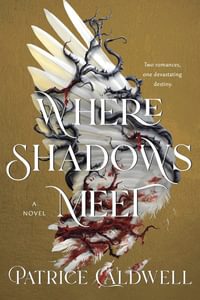
Love and Sacrifice
Where Shadows Meet by Patrice Caldwell ’15 is the first in a young-adult romantic fantasy duology featuring vampires, humans, and the gods who created them both. It tells the story of Favre, who sacrificed her wings for love. Thana, the young goddess she so willingly gave them up for, sacrificed that same love for power. Favre never got over the loss of her wings. Thana’s choices led to eternal darkness and eventually their destruction. Favre has bided her time, waiting for the chance to resurrect the girl she loves.
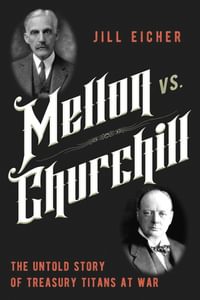
Debt Debates
Mellon vs. Churchill is the first book by Jill Eicher ’78, who served at the U.S. Department of the Treasury as a specialist in credit risk. The book explores the intricacies of international finance in the volatile period after World War I. In the 1920s, Winston Churchill, then Great Britain’s chancellor of the exchequer, and U.S. Treasury Secretary Andrew Mellon wrangled fiercely over the payment of the European allies’ enormous war debts. Eicher explores a little-known conflict in Anglo-American relations in the interwar years.
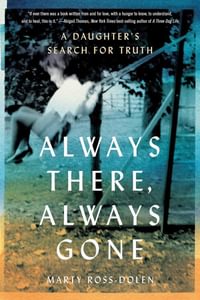
The Cost of Grief
Marty Ross-Dolen ’88 explores intergenerational trauma and mourning in her memoir, Always There, Always Gone. In 1960, her maternal grandparents, the founders of Highlights for Children magazine, were killed in a midair airplane collision while on a business trip. Ross-Dolen’s mother was 14 at the time. Though her mother grew up, married, and had a daughter, she remained in deep grief. Through long and short prose forms, photos, poetry, and letters, Ross-Dolen seeks to understand her family and the cost of the loss of relatives she never knew.
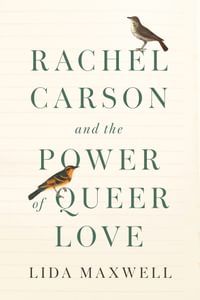
Sea of Love
In Rachel Carson and the Power of Queer Love, Lida Maxwell ’99, professor of political science at Boston University, highlights the legendary environmentalist’s deep relationship with Dorothy Freeman. After her first bestseller, The Sea Around Us, Carson settled in Southport, Maine, and met a married couple, Dorothy and Stanley Freeman. The trio quickly became friends. Dorothy and Rachel did something more: They fell in love. Maxwell explores their correspondence to reveal how Carson’s masterpiece, Silent Spring, grew from the love these women shared for their wild surroundings.


Post a Comment
We ask that those who engage in Wellesley magazine's online community act with honesty, integrity, and respect. (Remember the honor code, alums?) We reserve the right to remove comments by impersonators or comments that are not civil and relevant to the subject at hand. By posting here, you are permitting Wellesley magazine to edit and republish your comment in all media. Please remember that all posts are public.